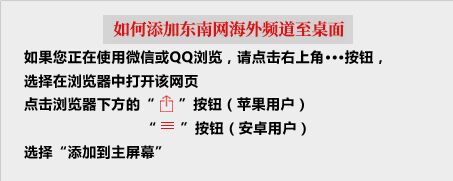


Japan should put more effort into containing nuclear-tainted water instead of PR stunts
TOKYO, April 17 (Xinhua) -- As the Japanese government counts down on its plan to discharge nuclear-contaminated water from the crippled Fukushima Daiichi nuclear power plant into the ocean, it is sparing no effort in its public relations stunt to quell raging opposition both at home and abroad.
In its latest move, Japan sought to use its Group of Seven (G7) presidency to drum up endorsement from the rich bloc, but was slammed after G7 environment and energy ministers met in the Japanese city of Sapporo.
At a press conference jointly held Sunday by Japan, Germany and Italy, after the two-day G7 Ministers' Meeting on Climate, Energy and Environment, Japanese Economy, Trade and Industry Minister Yasutoshi Nishimura said that the G7 ministers "welcome" the steady decommissioning progress including the release of treated water into the ocean, local media reported.
Nishimura was immediately contradicted by Steffi Lemke, Germany's minister for the Environment, Nature Conservation, Nuclear Safety and Consumer Protection, according to the Japanese Asahi Shimbun newspaper.
"I respect the efforts made by TEPCO (Tokyo Electric Power Company, operator of the Fukushima Daiichi nuclear power plant) and the Japanese government after the nuclear accident, but we can not welcome the release of the treated water," Lemke was quoted by the newspaper as saying.
The joint communique issued after the meeting noted the G7 nations welcome the steady progress of decommissioning work at the site.
"We support the IAEA's independent review to ensure that the discharge of Advanced Liquid Processing System (ALPS) treated water will be conducted consistent with IAEA safety standards and international law and that it will not cause any harm to humans and the environment, which is essential for the decommissioning of the site and the reconstruction of Fukushima," said the communique.
The joint statement failed the Japanese government's earlier expectations for G7 nations' endorsement of its latest wastewater discharge plan with restrained expressions, according to the newspaper.
Japan's attempt to pretext G7's joint statement for the process of discharging contaminated water from Fukushima has apparently failed. Nishimura told the media after the press conference that he "made a little mistake" by "including everything in the 'welcome'."
In January, the Japanese government announced that its controversial plan to release radioactive wastewater from the crippled nuclear power plant in the country's northeast into the Pacific Ocean will start to be carried out "in the spring or summer."
The potential harm to the marine environment and fisheries industry of the discharge, which may last for decades, is self-evident. However, the Japanese government and TEPCO are confusing the public with intensive public relations activities, refusing to make every effort to avoid discharge of nuclear-contaminated water.
Advertisements have been placed on television, in newspapers, and online to promote the "safety" of nuclear-contaminated water.
The country, doing everything possible to publicize the safety of the radioactive water, frequently holds press tours for diplomats and foreign journalists from various countries on the toxic water-dumping plan.
In the Japanese side's instructions on the discharge of nuclear-contaminated water into the sea, especially in foreign language materials, the term "treated water" is generally used to refer to "nuclear-contaminated water", which is intended to downplay its pollution characteristics and potential hazards, so as to achieve the purpose of confusing the public.
Japan's aggressive publicizing also reached Pacific island countries, whose livelihoods depend heavily on the marine environment. Due to geographical location and ocean currents, such countries are expected to be greatly affected by the discharge of nuclear-contaminated water.
These island countries that suffered from nuclear tests conducted by the United States and others in the Pacific Ocean now hold a strong stance against the discharge plan, making them critical targets of the Japanese government.
Some local experts here openly suggested that the Japanese government should spread more voices favorable to Japan's position through both major and local media in Pacific island countries.
The United States, out of its own hegemonic mentality, is complicit with Japan in the discharge of nuclear-polluted water.
A spokesperson with the U.S. State Department, when asked to comment on Japan's toxic water-dumping plan, made irresponsible remarks by saying that Japan's approach meets international standards.
Releasing nuclear-contaminated water into the sea is not a private or trivial matter for Japan alone, but a public and important matter related to the marine environment and human health.
Ignoring the legitimate concerns of the international community, the Japanese government, by forcibly discharging nuclear-contaminated water into the sea, violates its international obligations, endangers the marine environment and public health, and infringes on the legitimate rights and interests of neighboring countries.
Japan should focus on controlling nuclear-tainted water rather than racking its brains for more public relations stunts.

福建省福州市华林路84号福建日报大厦